
BBC Sky at Night Magazine
Q&A WITH A PLANETARY LIFE EXPERT
Saturn's icy moon Enceladus boasts water, heat and organics. Now scientists have discovered it has complex chemistry too. Could it prove to be habitable?
3 min |
December 2025

BBC Sky at Night Magazine
Students fix JWST's blurry vision
PhD researchers restore the telescope's ultra-precise imaging - without a spacewalk
1 min |
December 2025

BBC Sky at Night Magazine
Did asteroids bring life to Earth?
Nick Spall examines the evidence that life on Earth came from outer space – and how close science is to proving it
6 min |
December 2025
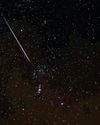
BBC Sky at Night Magazine
How to photograph the Geminids
Dramatic meteor photos aren't just down to luck. We show you how to bag one
3 min |
December 2025

BBC Sky at Night Magazine
Smart scopes: from backyard to big science
Home-based stargazers are helping scientists crack some of the Universe's big mysteries - and you can join them. Charlotte Daniels shows us how
6 min |
December 2025

BBC Sky at Night Magazine
Why do stars twinkle?
Find out how starlight that's steady in space seems to sparkle from Earth
2 min |
December 2025
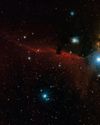
BBC Sky at Night Magazine
ASTROPHOTOGRAPHY PROCESSING
Make your dark nebulae shots shine
3 min |
December 2025

BBC Sky at Night Magazine
On a Mission
This is an inspiring tribute to the trailblazing women who shaped NASA's human spaceflight programmes.
1 min |
December 2025

BBC Sky at Night Magazine
Moon's split personality solved
Ancient heat imbalance may explain our Moon's two-faced appearance
2 min |
December 2025
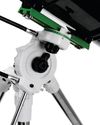
BBC Sky at Night Magazine
Sky-Watcher StarQuest DX130P Newtonian reflector set
A quality set for beginners, delivering heaps of value for the price
3 min |
December 2025

BBC Sky at Night Magazine
QHY miniCAM8 monochrome camera bundle
Versatile, novice-friendly and well-priced – but loose connections let it down
2 min |
December 2025

BBC Science Focus
Taking common vitamin D supplements may actually lower your vitamin D3 levels
Scientists are 'astonished' that the supplements could actually make deficiency worse
2 min |
November 2025

BBC Science Focus
PASS THE PLASTIC
All of us are ingesting microplastics. Could dietary fibre help us get it out?
3 min |
November 2025
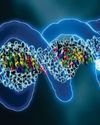
BBC Science Focus
'Ageing atlas' reveals how time reshapes our genes
Scientists are building the clearest picture yet of how we age - right down to our cells and DNA
4 min |
November 2025

BBC Science Focus
Can't see the coral for the trees
This may look like the sort of fantasy forest you might get lost in during a dream, but it's very much real. That said, it's neither a forest, nor big enough for you to explore. And that's because the surreal structures you see here aren't trees. They're coral.
1 min |
November 2025

BBC Science Focus
Surf's up
These distinctive clouds are named after the two physicists - William Thomson (Lord Kelvin) and Hermann von Helmholtz - who studied the phenomenon that forms them. The peculiar wavelike shape of Kelvin-Helmholtz clouds is caused by two layers of the atmosphere moving at different speeds above and below the cloud layer.
1 min |
November 2025

BBC Science Focus
There's another diabetes in town, here's how to recognise it
Misdiagnosis rates for this rare type of diabetes could be complicating treatment for patients
5 min |
November 2025

BBC Science Focus
Only 1% of the world is eating a healthy and sustainable diet
A major report found healthier diets could transform the food system
3 min |
November 2025

BBC Science Focus
THE PUDU
Just when you thought Bambi couldn't get any cuter, meet the pudu, the world's smallest deer. Standing little taller than a domestic cat, what it lacks in size, it more than makes up for in allure. Doe-eyed, button-nosed, with little legs and perky ears, this diminutive South American mammal looks like it has stepped straight out of a Disney film.
2 min |
November 2025
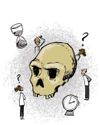
BBC Science Focus
60-year mystery of the fossil skull that baffled scientists may finally be solved
The Petralona skull was discovered in Greece in 1960, yet its origin has perplexed experts – until now
2 min |
November 2025

BBC Science Focus
MEAT YOU COULD MAKE YOURSELF
No livestock and no labs needed. A collective in Japan has come up with a kit that could help people grow meat in a Petri dish (in very small portions)
3 min |
November 2025

BBC Science Focus
WHICH VAPE FLAVOUR IS WORSE FOR YOU?
If you're trying to quit smoking, you'll have probably heard talk that switching to e-cigarettes - or vapes - is a healthier option. One study by researchers at University College London estimated that in 2017 alone, over 50,000 people stopped smoking thanks to their use of e-cigarettes.
2 min |
November 2025

BBC Science Focus
Cleaner, greener fuels are coming to Formula 1. Here's what that means
The 2026 F1 championship will be raced using 'sustainable' fuels. But how much of a difference will it actually make to the sport's carbon footprint?
5 min |
November 2025

BBC Science Focus
We finally know why men don't live as long as women, say scientists
Males that spend less energy on sex and more on raising their children tend to live longer
2 min |
November 2025

BBC Science Focus
Finally... An EV worthy of your bedroom wall
Ferrari's new Elettrica could be the car that gets dyed-in-the-wool petrolheads to long for an EV. It could also be the car that reshapes the entire EV landscape
4 min |
November 2025

BBC Science Focus
COLD AND FLU SEASON
Nobody enjoys being stuck in bed sneezing and coughing the days away. But there are steps you can take to increase your chances of avoiding these winter ailments
4 min |
November 2025

BBC Science Focus
Scrolling on the toilet could harm your health
The dirty habit may be more than just unhygienic
1 min |
November 2025

BBC Science Focus
DOES NEGATIVE THINKING INCREASE YOUR RISK OF DEMENTIA?
Dementia and disorders like depression and anxiety (conditions associated with persistent negative emotional thoughts) have long been intertwined.
1 min |
November 2025

BBC Science Focus
THE QUEST TO FIND THE EDGE OF THE SOLAR SYSTEM
NASA's newly launched IMAP mission is set to tell us more about the boundary between our Solar System and interstellar space than ever before
7 min |
November 2025

BBC Science Focus
HOW MANY ELECTRONS ARE THERE IN THE UNIVERSE?
It's difficult to know for sure how many electrons are in the Universe. British physicist Arthur Eddington (1882-1944) came up with a number in 1938, now known as the 'Eddington number'.
1 min |
